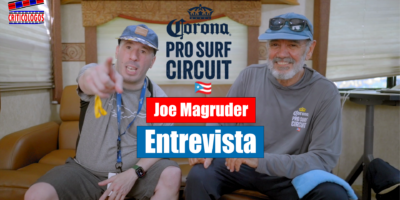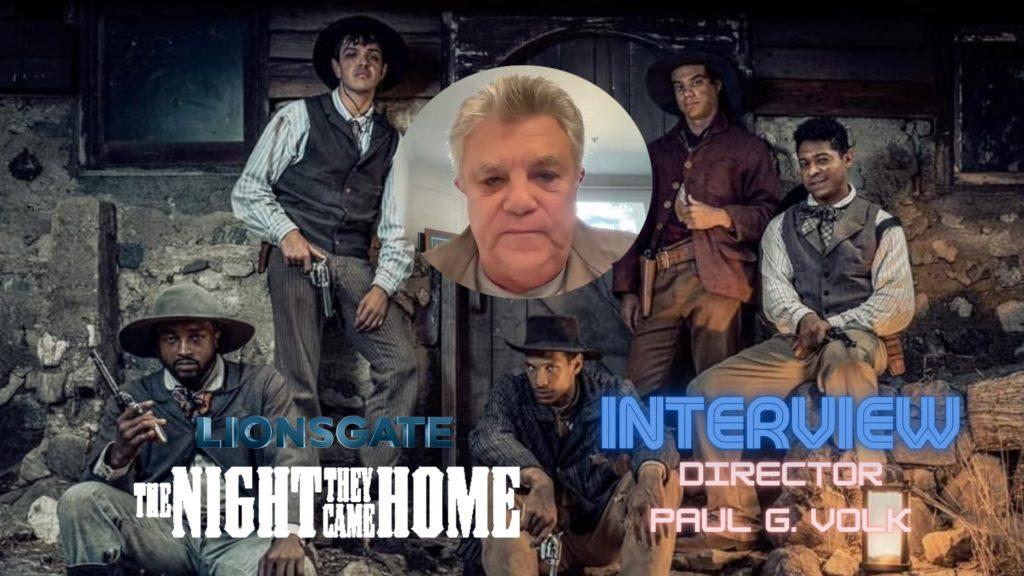
Giving life to the Rufus Buck Gang, we speak with “The Night They Came Home” director, Paul G. Volk. #TheNightTheyCameHome #PaulGVolk @Lionsgate @Rmediavilla
Inspired by true events, The Night They Came Home chronicles the ruthless exploits of the Rufus Buck Gang, a group of outlaws who clashed with the Indian Territory of Middle America at the tail end of the 19th century. The combined force of local lawmen and Indian police aim to take down a coldhearted band of fugitives with vengeance on their minds in a Western thriller starring Brian Austin Green, Charles Townsend, Robert Carradine, and Danny Trejo
Now Available in Theaters, On Demand, and Digital.
Criticólogos:
I’m a fan of Westerns, and specifically this one because it’s based on a true story. I’m a sucker for anything that’s based on a true story. But I’m curious, what is it about Westerns that they all tend to work?
Paul G. Volk:
Well, it’s bridging an actual period in our history, of course. But then, you know, it’s interesting because I’m a big fan of Sergio Leone Westerns. I did a post-apocalyptic western in 1994 called Steel Frontier, which was, uh, it was, uh, we based it on a lot of Sergio Leone. It was almost like a homage to Sergio Leone, and those almost inhabit a whole other universe, you know? But the American Westerns. They could be a slice of our history, and I think that’s one of the reasons that they do ring true. You know, I mean, I think maybe most Westerns are a little more deadly and dangerous. Then possibly it was in that time not to downplay because it was dangerous. But yeah, so they’re a slice of our American history.
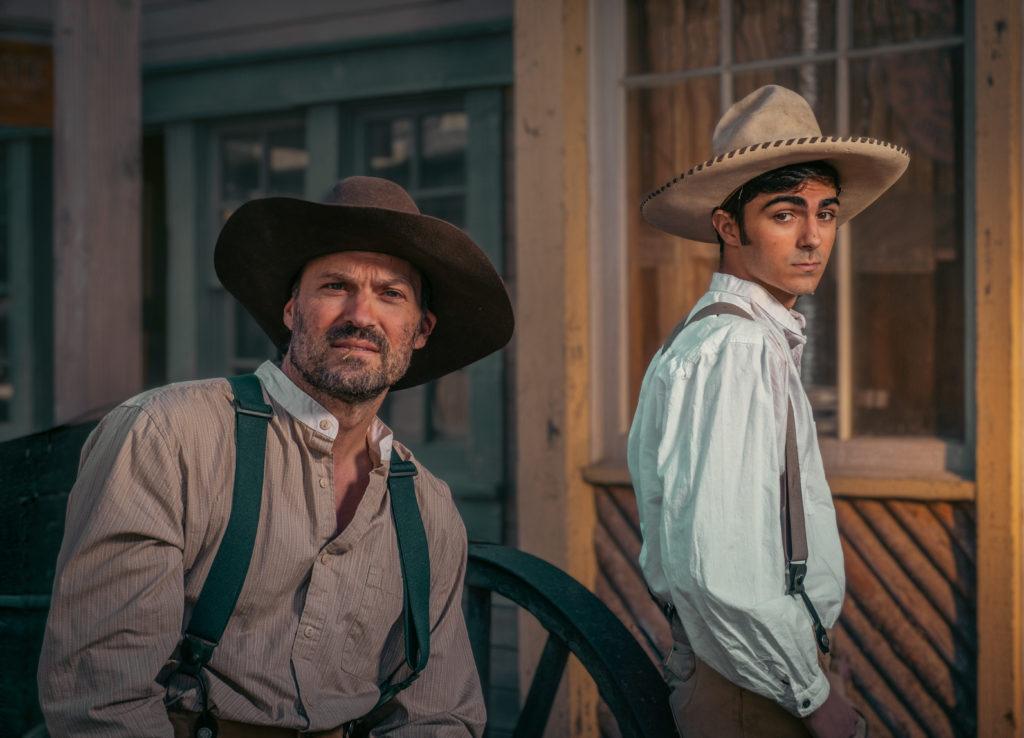
Criticólogos:
How much of the story about the Rufus Buck Gang because they did a lot of stuff, and we only cover so much in the movie. How much did you know about them before coming into the story, or did you find out about them when the project came about?
Paul G. Volk:
Yes. When? When the producer handed me the script, that’s when I first read about the Rufus King, and I was enamored. I just loved what I was reading. I found it very interesting. What was amazing was the Oklahoma Arkansas Territory was run by mostly Indian, Black, and Asian police that were very the whites were the fewest people there. Um, it was amazing how many Black and Indian police that they had that were policing themselves and trying to make something of their territory.
Criticólogos:
How does this story translate to modern days? How are people going to relate to what happened back then to these modern times?
Paul G. Volk:
I mostly centered on the fact that this happened to the Rufus Buck Gang, that they went to the missionary schools, that them being well half breed Indians had to experience all the bad things that happen to them the stealing of the land, the well, the stealing of their women, the raping of their women, basically ending their way of life, and then the fact that they were just doing back to the whites what was done to them, that was mostly what I was dwelling upon, thinking about them. I’m sorry I didn’t bring it into modern times, um, which is there. And the fact it didn’t make it okay for them to react the way they did. It wasn’t an excuse, but it was, and this is a, uh, a line from the movie. It was the seed of all evil, you know, it was a seed that grew and grew and grew until they were finally it, but it exploded. And they did there, their reign of terror. There are 2 weeks to a month of reign of terror. So, you can understand it. And of course,
I’m still amazed at how the gang took it all in, and by the end of the movie, you feel for them. You like them. They’re anti-heroes. But you feel for them.
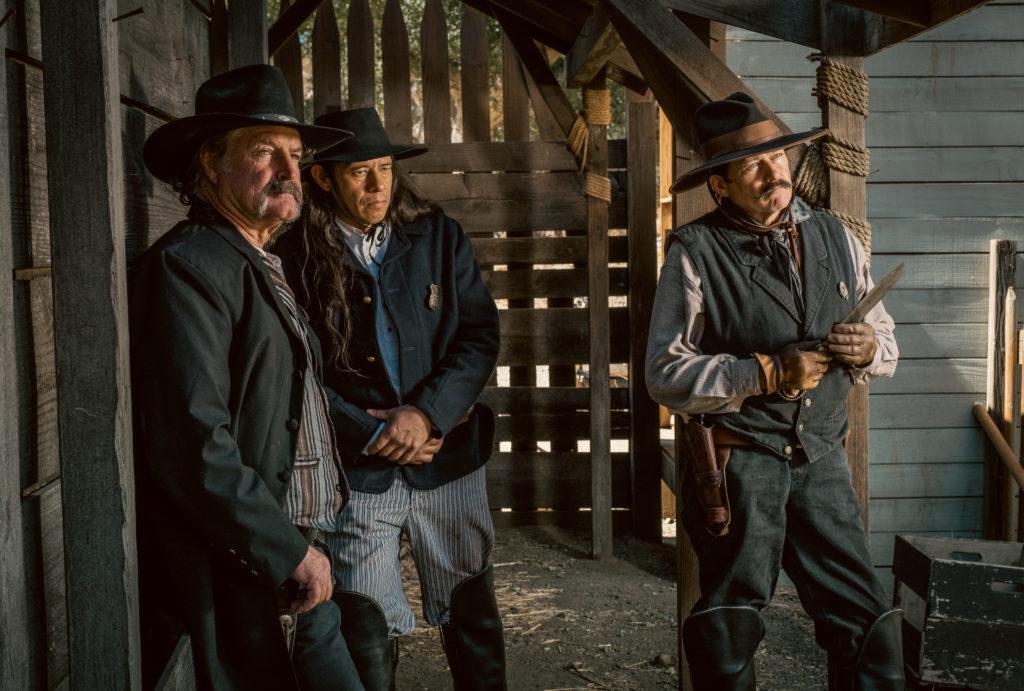
Criticólogos:
When you got the script and you saw what James wrote and what John wrote, did you follow just whatever they wrote or did you feel like, hey, I know a little bit more about the story now? Can we add this or that?
Paul G. Volk:
No, I got the first script from James Russo, and I read his script and I read his novel, the supposed bestselling, Amazon novel. It was found extremely interesting. I saw the differences between each understood that and realized this could be better. We could improve upon it. So, we hired, James O’Brien. And we spoke at length, and we just discussed everything. And he had some amazing ideas, some of them which didn’t make it, you know, on film. However, I was extremely happy with the final rewrite. I rewrote some stuff, and the producer Patrick Durham rewrote things too.
So, things were being rewritten sometimes to the very moment we shot them. I discussed so much with, um, Charlie Townsend, who played Rufus. Um, I was entirely open to any input that he had that seemed to make this character truer. So, things changed. And same thing with, um, uh, the guy who played, um, Thomas Kimball, because it centered, at least for the second half between Tim capturing, Charlie. They both had a lot of input, and I think the film was made better by this, you know, I mean, I’m okay with talking to my actors. Whatever makes them work the best, you know? And, I mean, sometimes you must. You have to say no, that’s not working for me, but it’s a three-way conversation.
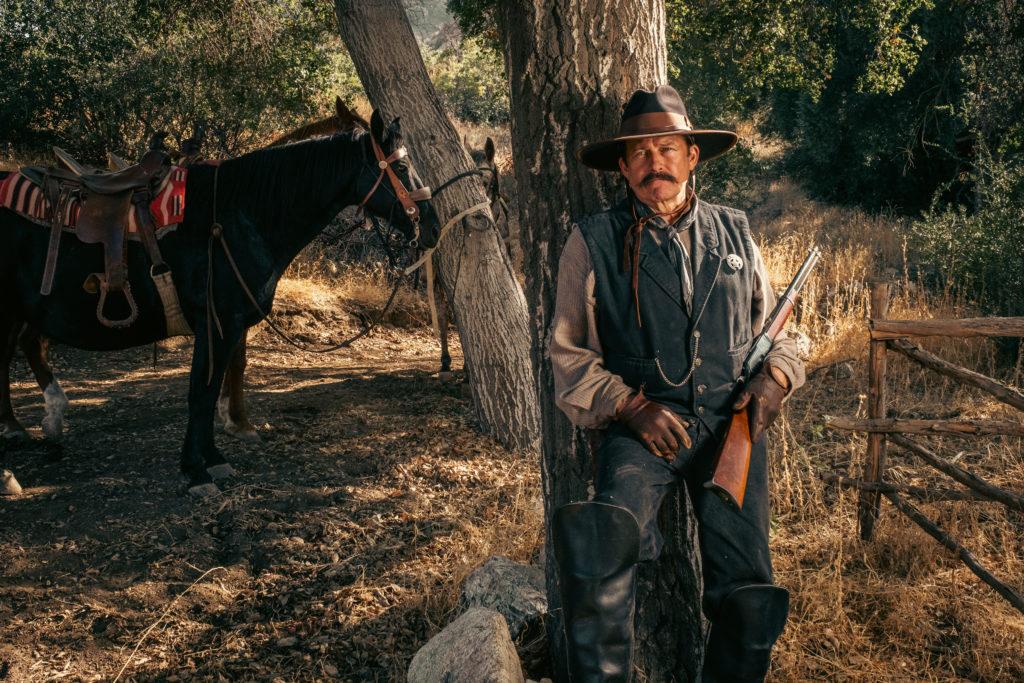
Criticólogos:
I want to speak a little bit about the cast. Danny was the narrator of the story. He was telling the story of how everything happened. But, Charlie, who blew my mind, carried the film that in my opinion. So, I wonder how much Danny Trejo brought something to the table that you weren’t expecting. And the same with Charlie. How did this come about?
Paul G. Volk:
I worked with Danny in two previous movies, so I’ve gotten to know him well. He’s a wonderful person and it’s not a surprise that he brought to the table. He’s a delightful person. Of course, the script was written before he came in and sat down and read the words, but of course, he made them his own. So well, you know, just his glances, his smiles, his nuances. Um, you know, everything that he does brings to that. He’s such an original, you know. But I mean, of course, the words were there, and he just brought them to life. Um, I mean, I think that uh, that that scene, for as simple as it is, does add something special to the movie. Uh, well, Danny Trejo being Danny Trejo, of course, people love him. And they love to see him. They loved to hear him talk, and I was just very thankful that he was part of the movie.

Criticólogos:
What about Charlie?
Paul G. Volk:
Oh, Charlie! Oh, my God, what a wonderful experience that was. The moment he came in and read for me, I knew it. This was our Rufus. Even though we had the rest of the gang read for me pretty much before Charlie and several of them, could have been Rufus too. Honestly, they’re all very talented. I mean, I was so lucky to find this group of young men who were just so into it and such fine actors.
I mean, but I think Charlie is. This might sound a little crazy. Was very close to channeling the real Rufus Buck. I swear to God, it felt like he was channeling that character or that that that. Well, that long-dead person. Yeah, just what a pleasure working with such, such a talented, hard-working actor, you know, but the rest of the band of the team were also amazing. It was it was a group effort. But yes, Charlie, he was at the head and. Oh my God, oh my God.
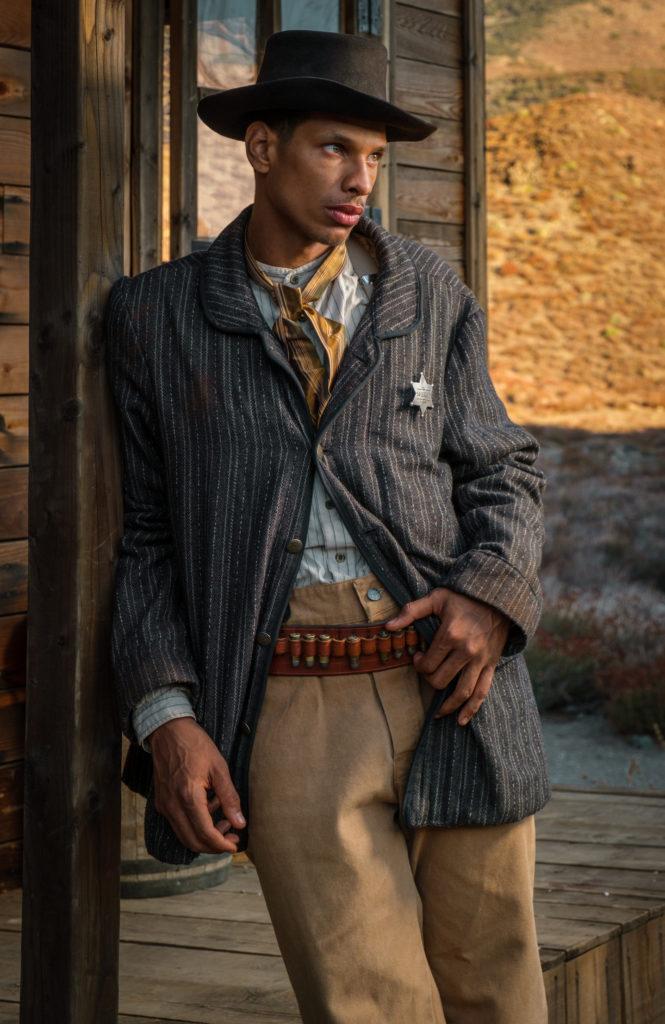
See the interview below:
Trailer:




